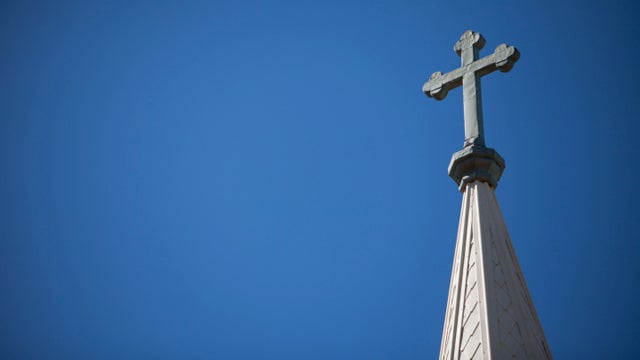The Catholic Church’s defensiveness and culture of secrecy have made it tragically reluctant to admit error and slow to put in place safeguards.

The October revelations concerning sexual abuse by the Roman Catholic clergy in France were cruelly unsurprising. The report, the result of an independent inquiry that began in 2018, exposed how since the 1950s more than 216,000 children had been sexually abused by clergy. There were around 3,000 separate abusers, those who complained about their assault weren’t believed, known abusers were moved rather than charged, and the church hierarchy seemed more intent on denial and obfuscation than protection and justice.
It is a story that we’ve heard from nation after nation, city after city, diocese after diocese. And even the latest papal reaction sounded like devilish déjà vu. Pope Francis said he “felt pain” at what had happened, a banality he’s uttered numerous times as outrages come to light, though sometimes only after public pressure.
At least he acknowledged that the abuse had happened, which is more that can be said about many of his predecessors. Pope John Paul II was especially bad in this regard. It was the Boston sexual abuse scandal reported in 2002 that opened the doors for further investigation, and in that case journalists, activists and survivors had to constantly fight lawyers and bishops in their search for justice. Whatever the Roman Catholic Church might like us to believe, little of its contrition has been voluntary.
In my adopted home of Canada, the Basilian Fathers of Toronto went so far as to appeal a legal settlement awarded to survivors of systemic sexual abuse. Damages worth C$2.57m (£1.5m) were given after the main abuser – William Hodgson Marshall – admitted his numerous crimes over a 38-year career. Rejecting the argument that the payment was too generous, the Ontario Court of Appeal stated: “In rendering the award, the jury was no doubt taking into account the evidence that the Basilians knew Marshall had been abusing boys before he was ever ordained, they allowed Marshall to sexually abuse children for more than three decades as a teacher and religious figure, and they decided to move him to different schools when incidents of abuse were reported instead of preventing further harm.”
Once again, entirely standard, whether it’s Ireland, Canada, the UK, US or pretty much anywhere else the Catholic Church has authority and control. Not, of course, that abuse is confined to one particular religious institution, but it’s the scale and regularity of the Catholic phenomenon that is unique, and the way that even now the Church escapes the sort of condemnation that would surely be applied to a secular institution.
Church leaders may have agreed to put in place long-overdue safeguards and precautions but this is largely window-dressing when the fundamental causes remain so firmly present.
The first of these is enforced celibacy. The Church reveres procreation but has a troubled view of sex. Masturbation, for example, is a sin, and homosexuality an “intrinsically disordered” act “of grave depravity” that is “contrary to natural law”, according to its catechism.
Yet in his 2000 book The Changing Face of the Priesthood, Donald Cozzens estimates that as many as 58 per cent of priests are gay. This is pertinent. Because of the Church’s homophobia, even celibate gay men have to disguise their sexuality, and that cloud of unknowing can shelter not only gay men who are innocent, but also abusive priests who molest children. One of the many tragedies of the ongoing scandal is that Rome, in an attempt to distract from the real problems, has pointed the finger at gay clergy – even though the Church’s own 2011 study by the John Jay College of Criminal Justice confirmed that there was no connection between homosexuality and paedophilia, which is precisely what every other credible investigation has found. Yet as part of the alleged response to the abuse crisis, Pope Francis had made it more difficult for gay men to enter a seminary than it was under any of his more conservative predecessors.
Complete Article ↪HERE↩!
